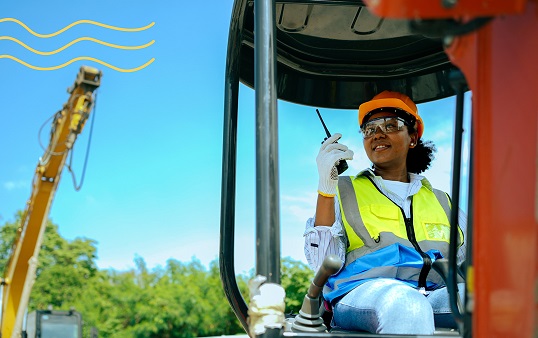
Recent years have shown a significant shift in the dynamics of the workforce, particularly in industries traditionally dominated by men. Fields such as construction, engineering, technology, and mechanics are seeing an increasing number of women who are not only joining these sectors but who are also thriving and leading.
By introducing another perspective, women are positively challenging issues of equality, ethics and organisational structure, an amazing side benefit of women in trades.
This change signifies a critical move towards gender equality and empowerment. However, the path to success in these non-traditional trades can be challenging for women, primarily due to existing stereotypes and gender biases and the resultant behaviours they must endure. Building confidence and a sense of empowerment is essential for women to overcome these challenges and excel in their chosen fields.
Understanding the Landscape
Before delving into strategies for success, it’s crucial to understand the landscape of male-dominated industries. These fields often have a longstanding culture that may not be immediately welcoming to women. Recognising this is the first step towards navigating them effectively. It’s not about changing who you are to fit in, but rather understanding the environment and finding ways to assert your presence confidently.
Here are our eight tips for women entering non-traditional trade careers.
1. Education and Continuous Learning
Knowledge is power, and this is particularly true in non-traditional trades. Women should focus on acquiring as much knowledge as possible about their chosen field. This can be through formal education, certifications, online courses, or workshops. Continuous learning demonstrates commitment and competence, key factors in building self-confidence and gaining respect from peers.
2. Finding Mentors and Role models
Mentorship is incredibly valuable. Finding a mentor who has navigated the same path can provide guidance, support, and practical advice. This mentor doesn’t necessarily have to be a woman, although female role models in the field can be particularly inspiring. Mentors can help in understanding the nuances of the industry and in building a network.
3. Networking and Community Involvement
Building a strong network is essential. This can be achieved through attending industry events, joining professional organisations, and engaging in online communities. Networking not only helps in career advancement but also provides a support system of individuals who understand the challenges and can offer advice and encouragement.
4. Developing a Strong Personal Brand
In male-dominated fields, it’s important for women to establish a strong personal brand. This means being clear about your unique skills, strengths, and what you bring to the table. A strong personal brand can help in standing out, being taken seriously, and being remembered.
5. Building Resilience and Handling Discrimination
Resilience is key in any challenging environment. It’s important to develop a thick skin and learn not to take negative experiences personally. If faced with discrimination, it’s crucial to address it directly and professionally, seeking support from human resources if possible, a mentor, or using official channels like Fair Work Australia, if necessary.
6. Advocating for Yourself
Women in non-traditional fields must learn to advocate for themselves. This includes speaking up about achievements, asking for opportunities, and being clear about career goals. Self-advocacy is crucial in ensuring that your hard work is recognised and rewarded.
7. Work-Life Balance
Maintaining a healthy work-life balance is crucial. It’s important to set boundaries and make time for personal life. This helps in maintaining mental and emotional well-being, which is essential for long-term success.
8. Embracing Failure as a Learning Tool
Failure should be seen as a part of the learning process and is something everyone in the workplace will experience. Rather than focussing on the failure, the growth comes from focussing on the lesson. Failure is an opportunity to grow and improve. Embracing failure with a positive attitude can build resilience and confidence.
Entering and succeeding in male-dominated, non-traditional trades requires confidence, resilience, and a strategic approach. By considering these key principles you will find support in your professional standing, develop important relationships, nurture your learning and stand up for your rights and abilities. In doing this, women not only succeed but also pave the way for future generations in these fields. The journey might be challenging, but the impact of more women in these trades can be profoundly transformative, both for the industries and for the women themselves.
Article written by Caroline Miall, Mentor Officer, BUSY Sisters
